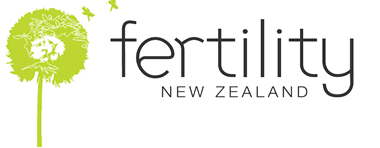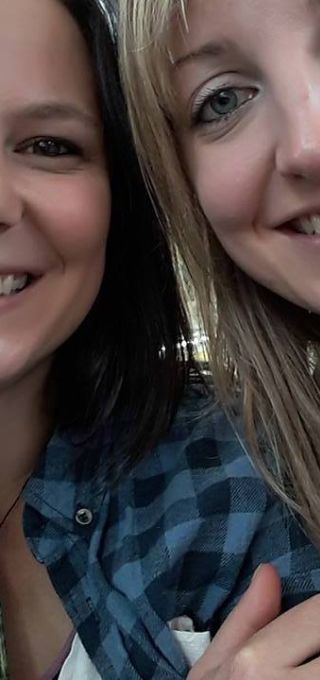Egg donation
The donation of eggs (oocytes) is a generous gift to people who, because they are not able to produce their own viable eggs, may only achieve a pregnancy by using eggs from another woman.
Who are the donors?
Donors may come to the clinic in one of two ways. ‘Clinic recruited’ women may have seen advertising and offered to be a donor for a couple on the clinic list. These donors will be between 21 and 35 years old. Some people choose to do their own advertising via a clinic to ensure they have first choice of any respondents.
Alternatively, people bring their own donor to the clinic. This is often a faster way of accessing donor treatment. It is possible for a personal donor to be older than 35 as long as donor and recipient accept the issues involved.
New Zealand’s legal situation
In New Zealand, donors are expected to be available for the donor children, or their families, if they need information. The Human Assisted Reproductive Technology Act (HART Act) 2004 created a central register of offspring and their donors. At 18 years of age (or younger in special circumstances) the offspring can access details of their donor if they wish, and should be able to locate them. Clinics suggest counselling support for the offspring and their donors to help make the meeting successful.
In New Zealand, egg donation must not be commercial, so no payment may be made to the donor. However, reasonable expenses may be claimed. Examples of this include transport to the clinic for treatment, pre-pregnancy vitamins, and childcare if required during egg collection. This will be discussed with donors by the clinic prior to starting the IVF cycle.
In practice, many New Zealand clinics now charge recipients a fixed sum for compensation of ‘clinic-recruited’ donors. This is in line with many other countries’ practices. Where there is a known donor, the clinic will ask the donor if they would like this compensation, and if so, the recipient will be invoiced. Sometimes, though, recipients and known donors will make their own arrangements.
Who requires donor eggs?
Women whose ovaries have stopped producing eggs (ovarian failure), produce poor quality eggs, or women who do not have ovaries will require donor eggs to achieve a pregnancy. Donor eggs may also be used by women with genetic disorders that may affect a child. Women who have had treatment, such as chemotherapy, which stops the functioning of their ovaries, may also need donor eggs. Egg donors are also used by women who have a low chance of pregnancy using their own eggs because of their age. Gay male couples (and single men) will need a surrogate - this may be in conjunction with an egg donor (gestational surrogacy), or using the surrogate's own egg (traditional surrogacy).
Being a donor
There are important issues to be considered prior to being a donor. When you first ring the clinic to express an interest you will be sent information about some of the issues and the process of IVF. If you decide to investigate further, appointments will be made for you with a doctor, counsellor and nurse. These appointments will provide you with the opportunity to consider all aspects of being a donor, and allow the clinic to check that being a donor will not have a detrimental effect on you. There are a number of screening tests for you to complete. These will ensure you are in good health. There is a period of ‘quarantine’ before your donation is used. This allows you to complete all the clinic procedures and also gives you time to reflect on your decision.
If you are a clinic donor, you will provide eggs for one recipient couple/single. Staff at the clinic will work with you to help you describe the sort of people you wish to donate to. You will see their profile prior to beginning the treatment. Sometimes donor and recipients choose to meet at the clinic in a nonidentifying way. While this reduces your confidentiality it also helps you feel comfortable about the people you are donating to.
Being a donor requires having an IVF cycle. The goal of IVF is to use drugs to stimulate your ovaries over a period of approximately 2–4 weeks to produce a number of eggs. You will be taught by the nurses to administer the daily injections used to stimulate the growth of eggs. Staff will ensure you understand any risks associated with IVF. The eggs are collected and fertilised in the laboratory with the recipient man’s sperm (or donor sperm). After egg collection the clinic will monitor your well being to ensure your body settles down after the IVF cycle.
Using donor eggs
It may be very distressing for a couple to discover they will require eggs from another woman if they are to achieve a pregnancy. People need to work with their counsellor to deal with the grief involved before they begin donor egg treatment. Some of these people will feel more comfortable using someone they know as a donor (family member or friend). However many couples do not know anyone they feel they could ask to be a donor. The counsellors will help you sort out what is best for you and your future child. The recipient(s) will work closely with the doctor, counsellor and nurse at the clinic to consider all the implications of the treatment. The child(ren) created by the treatment will need to know their genetic information at some stage. It is important that the recipient(s) have thought through all aspects so they can feel confident about their decision.
There are two approaches to a donor egg treatment. One is to synchronise the donor and recipient, so the recipient’s uterus is at the right stage when eggs are collected from the donor. Increasingly, however, all the embryos are frozen and thawed one at a time later on. This makes it easier to plan treatment for both parties. When people make the decision to have a child they develop dreams and expectations about this child. Being faced with the reality that they will not be able to have a child that is fully genetically their own means they have to reshape their dreams and expectations.



